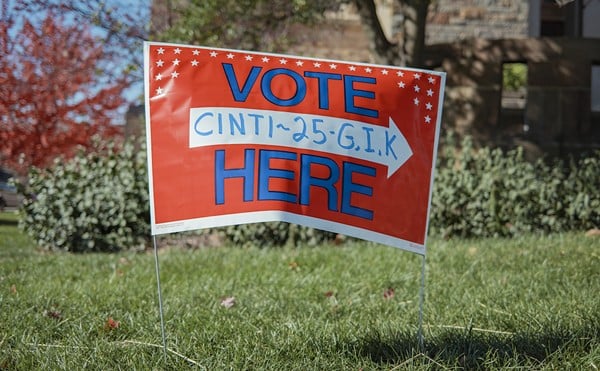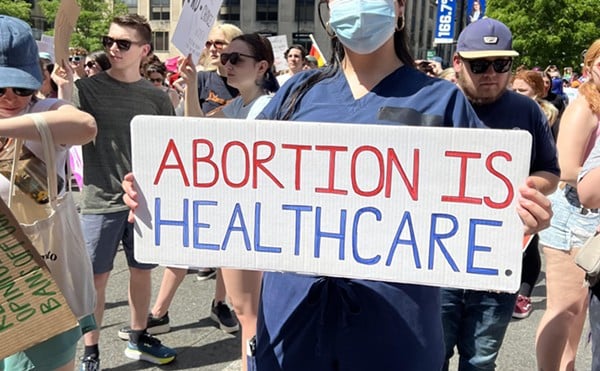|
Kay McEvoy's voice cracks with emotion when she speaks of her sister Ann. Four years have passed since Ann took her own life, but McEvoy still feels pain simmering close to the surface.
While family members and support groups helped her to deal with the loss, one overwhelming question still lingers in her mind: Why?
"The day that she died she was on a pretty low cycle, and typically they say when people have been very low and later show signs like they're OK, that's when it happens," she says. "It's almost like they get their strength back enough to do it. So she's not typical in any of these profiles when it comes to suicide. Typically, I guess, the profile of someone who takes their life is someone who is suffering with depression that is undiagnosed and they self-medicate with drugs and alcohol. She didn't do any of that. She was following everything that they told her to do."
In order to help find answers and to keep others from taking their lives, McEvoy has teamed up with the American Foundation for Suicide Prevention (AFSP) as Cincinnati chair of the Out of the Darkness Community Walk.
AFSP will use the funds from walks in 24 cities to further research, education and treatment programs to prevent suicide as well as increase support for survivors of suicide loss.
'The mind would take me'
Researchers and family members of those who took their own lives founded AFSP in 1987 because they didn't feel enough was being done to prevent suicide, according to Executive Director Robert Gebbia.
"There are 30,000 suicides every year in the United States and there are close to 1 million attempts each year," he says. "That's an attempt a minute, every minute of every day, and in terms of suicide deaths it's about a suicide every 18 minutes, so it's a major health problem."
Part of the problem is a self-imposed barrier that exists for people seeking help; they often turn to drugs or alcohol instead of professional treatment, Gebbia says. People suffering from mental illness find their symptoms too embarrassing to talk about, so they tend not to consult medical professionals or even tell their own family members.
"I think part of the problem is the stigma works against people seeking treatment," Gebbia says. "Yet depression and mood disorders are illnesses that are no different in terms of being illnesses than heart disease or cancer. There are treatments available, and we would encourage anybody who's worried about somebody — or they themselves have the symptoms — to seek help."
Steve Siple, chair of walker recruitment for the Community Walk, says he wishes his father would have sought therapy before he took his own life. Siple's father hid his bouts with depression from his friends, co-workers and children the majority of his life, eventually costing him several jobs and his marriage.
"My dad wanted to defeat his depression through medication alone," Siple says. "He wanted to take pills and make it go away. He was forced when he was hospitalized to do some talking therapy, and he never took it beyond the required period of time. There was never any voluntary continuance of that on his part."
Siple found out about his father's death from his father's former girlfriend, whose contact information was on the suicide note.
"This former girlfriend told me that my father had committed suicide," he says. "He had driven his car to Clinton Memorial Hospital. He had parked in the parking lot and took a rifle and made a big mess of his head. That's when things began for me."
Those "things" were frequent anxiety attacks that Siple later traced to his own fears that he would somehow follow in his father's footsteps.
"I was scared to death that there was a strong enough genetic link that I was destined for the same fate — and I didn't want that to be," he says. "But it scared me to death that I wouldn't have a choice in the end, that the mind would take me kicking and screaming."
'How much I didn't know'
Through therapy, medication and strong Christian beliefs, Siple says he now feels hopeful about his future and in control of his own destiny. He hopes his story and involvement in the Out of the Darkness Community Walk will help inspire others to seek professional help.
McEvoy hopes sharing her sister's story will help broaden awareness of mental illness, depression and suicidal tendencies.
"The one thing that was so profound to me was, when (Ann) died, I was very humbled by my ignorance on the topic, because I really hadn't had any understanding of mental health issues prior to this," McEvoy says. "Ann was very open about her illness and talked about it. I went to doctors' appointments with her and read books and thought I knew something. But then when she took her life, I realized how much I really didn't know and how much I really didn't understand about any of it."
While chairing the walk trudges up painful memories, McEvoy says she needed to be part of a suicide prevention program in honor of her sister.
"I think her legacy in life and the reason I'm motivated to do this is because (Ann) was so open about her illness," she says. "When I'm talking to other people or friends who are dealing with someone who has bi-polar or depression and they're frustrated with something they're not doing, I keep repeating, 'It's an illness they wouldn't choose; there's no benefit to anybody.' You just have to recognize it's like cancer or any other disease. It's something that's happening in the brain chemistry."
The Out of the Darkness 5k walk is at 9 a.m. Sunday at Ault Park. Food, drink and music will be provided, and representatives from mental health agencies will answer questions and distribute literature.
For more information about the American Foundation for Suicide Prevention, visit www.afsp.org. To register for the Out of the Darkness Walk, visit www.outofthedarkness.org.





